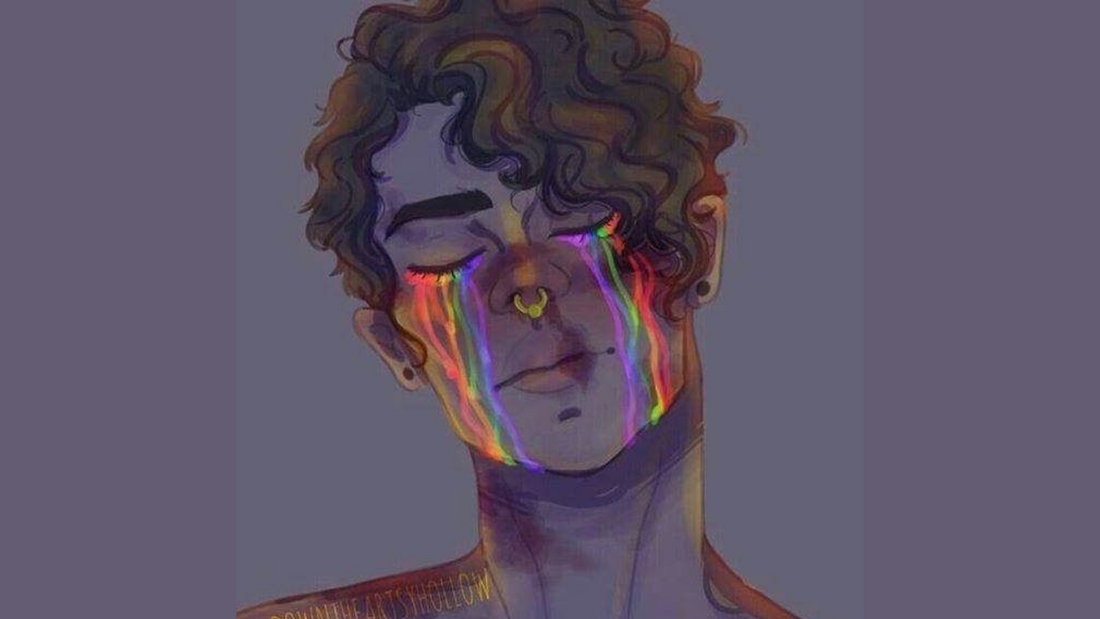
Impact of Social Isolation on LGBTQ+ Communities
KFTS BloggersShare
By Vanika
As youths, we require social connections such as family, friends, siblings, etc. Now imagine losing all of those connections because you want to be your true self. That is what LGBTQ+ communities face. Despite significant legal changes and social reforms, prejudice towards homosexuality continues to exist. Social isolation is one of the many difficulties that are faced by them. Society’s lack of acceptance leads to forms of marginalization like rejection, bullying, discrimination, and harassment which have serious consequences such as mental distress, loneliness, attachment issues, sensitivity to rejection, anxiety, extreme thoughts, and depression. Isolation, rejection, and self-denial throughout important developmental stages may affect youths' sense of self and self-worth, having long-term impacts on their mental health.
Several celebrities we know have talked about being anxious about coming out since they felt they won’t be accepted by their friends, family or fans. Miley Cyrus, who openly identifies as pansexual, talked about her experience of coming out and admitted that her parents didn't totally understand at first. Matt Bomer of White Collar fame said his parents didn't take his coming out well. “There was radio silence for a long, long time, at least six months." He went back home where he and his parents "had the blowup that I'd always feared," although things took a turn for the better. But, as we know, India is not as aware or accepting of LGBTQ+ communities as western countries.
Dedicating a month to celebrate pride and their struggles only to forget all about them and their hardships as soon as the month ends is not sufficient. We need to speak up and come together for something we always say, “unity in diversity.”
If you are someone or know someone who is struggling with a lack of social acceptance and isolation, here are some suggestions to cope with it-
Seek support - Contact trusted friends, families, and allies who accept you as you are. Be a part of a strong, trusted network that gives you a sense of belonging and provides you with comfort and acceptance. Consider joining LGBTQ+ support groups or obtaining counseling from mental health specialists who are familiar with LGBTQ+ concerns.
Educate yourself and others - Be aware of your rights, history, and issues faced by the LGBTQ+ communities and educate others around you as well. Consider teaching other people about the community’s struggle, sharing your personal tales, and advocating for rights and acceptance.
Connect with LGBTQ+ organizations - There are many LGBTQ+ organizations present both online and offline that provide support, and resources, and organize empowering activities and events. Connecting with like-minded people who share similar experiences can help combat social isolation and provide a sense of community.
Engage in self-care - Do activities that promote self-growth and self-acceptance. This may include mindful activities such as yoga and meditation, starting new hobbies, or seeking therapy to resolve long-term problems. Prioritize your mental, emotional, and physical well-being.
Make sure to seek professional support - At times, problems can be much more deep-rooted than we can anticipate. Lack of acceptance and rejection may lead to some long-term damage and loss of self-identity. Make sure to seek professional help to heal all the damages done in the past and discover your true self.

Your identity is valid; your experiences matter. Don't let society define or try to oppress you. Let's reach out, advocate, and encourage the LGBTQ+ communities and the social stigma that they face.
Resources-
https://salud.grupotriples.com/blog/en/fighting-isolation-and-loneliness-in-the-lgbtq-community/


